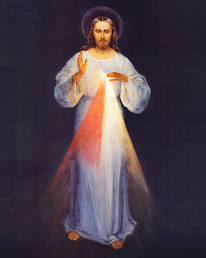One of the great gifts that I have received is the gift of faith. And one of the great graces I have received is the knowledge that not everyone has the gift of faith.
It may be odd to say that, but not everyone has the gift of faith. And when I say "gift," I'm not talking talent or ability. We do not "achieve" our faith. Thinking of faith as simply an achievement or a human action is akin to the heresy of Pelagianism which says that we can achieve our salvation ourselves, independently of grace.
Salvation is a gift given. And so is faith. Our task is to respond to that gift, just as Jesus has exhorted us to when He says, "Whoever believes in the Son will have eternal life" (John 6:40). Because He exhorts, trust that He will also give the gift to do so.
When it comes to the treasure of faith, not only have some people not yet received that grace -- and only God knows why -- but it is also worth noting that some have had faith and have lost it; as Paul says, "Some of you have made a shipwreck of your faith!" (1 Timothy 1:19)
So, not only should we have a gratitude for the grace of faith, we should also protect that treasure we have been given. Shoot, haven't you noticed how much signage is used in construction zones? So many orange signs! And the biggest of all signs -- Road Closed -- often with a barricade, alerts us and sometimes even physically prevents us from driving into danger, even the danger of driving off a yet-unfinished bridge.
If that is the case with our mortal lives, that we treasure them enough to protect them, then shouldn't we at least ask what we are doing to treasure and to protect the greatest gift God could give us, that is salvation and its accompanying gift of faith? Jesus connects salvation and faith when He says "Whoever believes... will have eternal life."
More zealous Protestants (often of the evangelical variety) sometimes accuse Catholics of being (... how shall I say?) ... sleepy. "If you claim to actually have Jesus at the Eucharist, then why do you never talk about it?" There is a caricature (and as such is partly true, partly not) that Protestants really know their Bibles. Is there a caricature that Catholics really worship the Eucharist? To some degree, I suppose.
And is that all a judgment of hearts? To some degree, yes. And shame on anyone who does so.
But the point here is that the largest Christian group in the United States is fallen away Catholics. And they either did not have the gift of faith, or know its value, or -- knowing its value -- endangered it and made a shipwreck out of it. And who knows why or how.
But we better be darn certain that the enemy, the ancient serpent, would absolutely love you to lose it, too. And he's not often brazen about it ("spit on the crucifix, will you?"). Rather, he just gets us to ... give a little away here and there. And a little more lukewarmness. And then a little sleep-walking in the faith.
Have you ever been in your car, driving, and realize that after a mile or so, you have no recollection about how you got to where you are? I've done that a couple of times and it is terrifying. "What in the world got me so distracted that I wasn't paying attention to the road??!?"
What has gotten me so distracted that I'm not attending to the faith and to the Eucharist??!?
Perhaps we need to put up some roadblocks to protect this treasure: more frequent confession; more frequent visits to the Adoration chapel; leaning in to the awkwardness of inviting people to Mass, even daily Mass; studying about the Eucharist and the saints that died for it; getting excited about it again; praying on the knees; really fasting before Mass; getting here early to just be with Him (because I really can't live without Him!).
And that's where the enemy often get's us. While he doesn't say "you could live without Him," he does say, "Well, you don't have to do ... that..."
Gosh, if we evangelized, knelt, studied, adored, fasted, and couldn't live without Jesus in the Eucharist, how many barricades of protection we would have around this amazing treasure! How difficult it would be to fall away.
And if this treasure is connected to eternal life as Jesus says, doubling down ("Amen, amen, I say to you, unless you eat the flesh of the Son of Man and drink his blood, you do not have life within you. Whoever eats my flesh and drinks my blood has eternal life" (John 6:53-54) -- if the Eucharist is connected to heaven, then shouldn't we do everything to treasure and protect that grace of faith that believes this?




